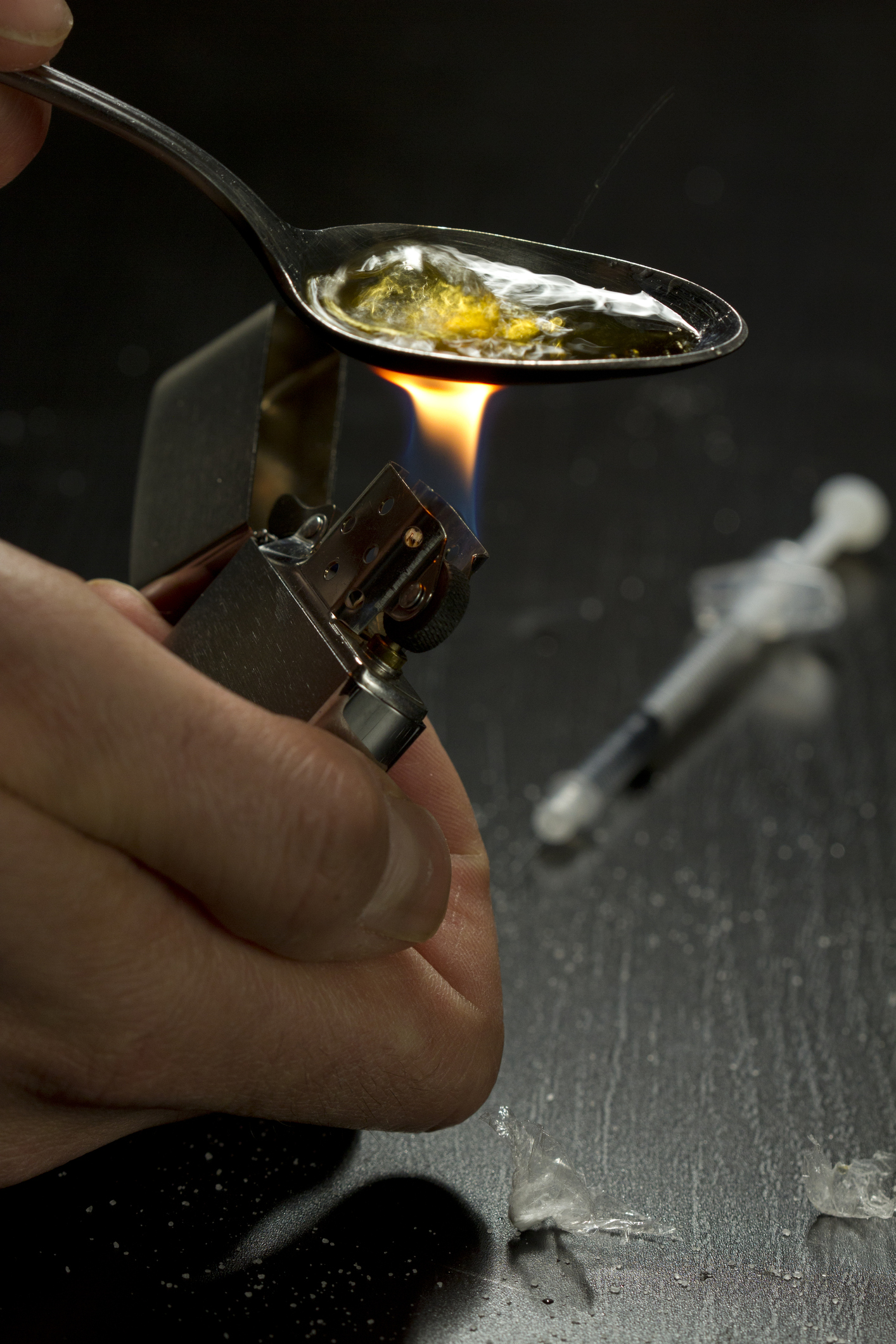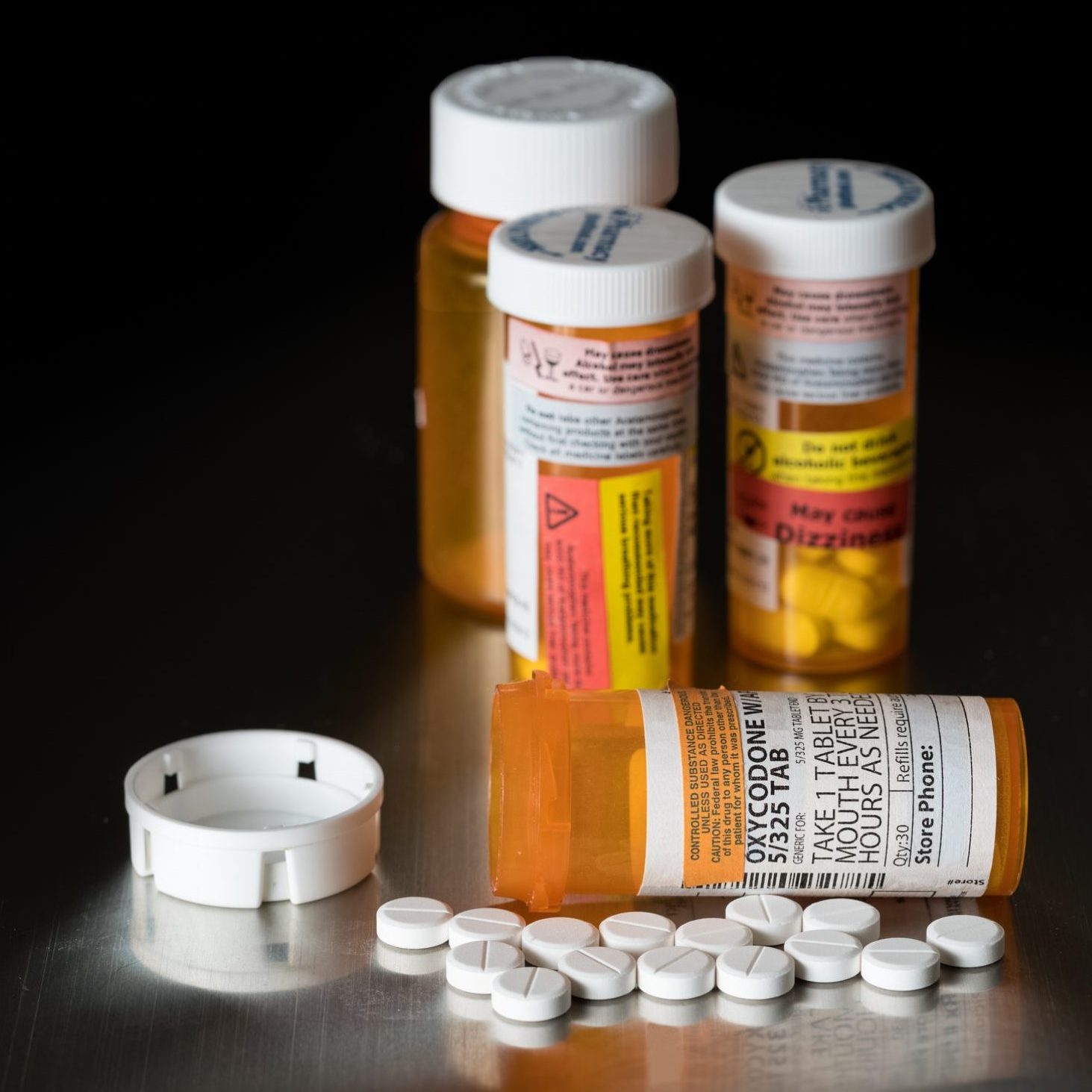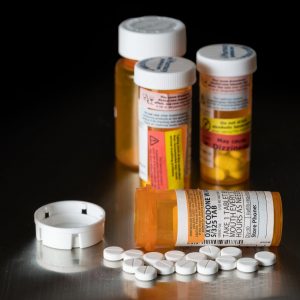
Scranton Proposes Pre-Arrest Initiative For Opioid Addiction
February 8, 2017
How The Drug Epidemic Is Affecting Our Youngest Generation
February 15, 2017Prescription medication abuse is growing by an alarming rate in the United States. According to the 2014 National Survey on Drug Use and Health, approximately 6.5 million Americans reported taking prescription medication for non-medical uses. Among these abused prescriptions medications is Percocet, a common painkiller. With the rise of the opioid epidemic in our local area, it is important to understand what Percocet is, the effects of it, and how dangerous it can be.
Percocet is a painkiller that is frequently prescribed for moderate to severe acute pain. It is a combination of an opioid analgesic (oxycodone), and an anilide analgesic (acetaminophen), the active ingredient in the over the counter painkiller, Tylenol. The opioid part of the medication affects the brain and central nervous system to change the way the brain perceives pain. It attaches to receptors in the brain and throughout the body in order to trigger a dopamine response. This gives the user feelings of euphoria and relaxation when taken in large doses. Unfortunately, people often view Percocet and other prescription drugs as safe since they are legal and widely used, but abuse of this prescription painkiller can not only lead to dependence on it or other drugs, but also physical damage such as liver failure, respiratory failure, and even death.
Effects of Percocet are similar to other opioid medications. They work by attaching to certain receptors in the brain that perceive pain. It also stimulates the reward center of the brain and produce euphoric and relaxing feelings. According to Percocet Abuse Help, “The oxycodone in Percocet binds to opiate receptors throughout the entire body and brain. This creates an analgesic and euphoric effect. The drug binding to the receptors causes the brain to produce more receptors. This, in turn, causes the user’s body to require an increasing amount of Percocet in order to experience the same effect. Once a user reaches this stage of tolerance and dependence, attempting to quit will likely cause withdrawal symptoms resulting in the user relying on the drug to prevent these symptoms.”
Anyone can quickly build a tolerance that can lead to misuse and end up using more to achieve the same pain numbing or pleasurable effects. Also, those who take it for an extended period of time may find themselves experiencing withdrawal symptoms when the drug wears off, which may prompt them to take more than needed or take it more often than prescribed. This cycle can lead to a substance abuse problem. Although abuse most often starts with those in need for pain management, there are some who take it strictly to get high.
Our admissions coordinators are available 24/7 to answer any questions you may have as you consider whether treatment at Clearbrook Treatment Center is right for you or your loved one.
Signs Of Percocet Addiction
How do you know if you or someone you know has a problem? As with many other drugs, there are certain physical symptoms that one might experience when abusing Percocet. They include confusion, mood swings, sweating, headaches, vomiting, depression, insomnia or excessive sleeping, fatigue, panic attacks or anxiety, decrease respiration, intestinal problems or constipation, and dizziness or feeling lightheaded. Other than the physical symptoms, there are many other signs that someone may be abusing Percocet.
Behavioral signs include taking more than prescribed or taking it more often than prescribed, lying about use or misuse, and even stealing in order to obtain the means to buy more pills or other drugs to obtain the same high. Some may visit different doctors in a short period of time in order to try and get more than one prescription. Once a prescription runs out, those who have become addicted often find themselves turning to street drugs that are more easily obtained, such as heroin. Current reports state that 4 out of 5 heroin users began with the use and abuse of prescription opiates. One user in an online forum told of a relative who ended up stealing rare and valuable antiques from a grandparent in order to obtain heroin once they started having difficulty getting pills. This led to a near fatal overdose after purchasing heroin laced with fentanyl, another opioid 100 times stronger than morphine.
Percocet Withdrawal
Withdrawal from Percocet can vary depending on several factors, such as length of use, the amount used, and even weight and age. Doctors who prescribe Percocet are advised to not only monitor patients for signs of abuse or misuse but to gradually decrease dosage to decrease the likelihood of withdrawal symptoms that can occur even in those who have not abused the drug. Percocet withdrawal should always be monitored closely as it is not only uncomfortable but potentially harmful. The length of detox and complete withdrawal depends on how long a person has been using the drug.
Physical symptoms of withdrawal include body aches, fever, muscle pain, sweating, nausea or vomiting, panic attacks, hypertension, dizziness, and fatigue. Those who try to quit “cold turkey” may experience more severe symptoms such as dehydration, seizures, and even coma. Because of the severity of effects, relapses often occur when individuals attempt to quit on their own. It is strongly advised that anyone with a dependence on Percocet seek help from a professional and detox in a qualified facility.
Overdose
Anyone who abuses drugs like Percocet is at risk for a potentially fatal overdose. Symptoms of an overdose can include extreme fatigue, dizziness, blue lips and fingertips, weakness, difficulty breathing, significantly reduced respiration rate, respiratory failure, loss of consciousness, coma, and death. If you or someone you know is abusing Percocet or other prescription medication, please seek help immediately. Supervised detox and rehabilitation is an effective way to stop the cycle of abuse and save your life.
Contact Clearbrook For Percocet Addiction
If you or a loved one is suffering from a Percocet addiction, please seek help immediately. For more than 4 decades, Clearbrook Treatment Centers has been a leader in qualified drug and alcohol addiction treatment. Located in the mountains of northeastern Pennsylvania, our patients have the opportunity to detox and recover from addiction in a serene environment. Our dedicated staff will provide you with the necessary tools to live a life free from the physical dependence and mental obsession that is addiction. Please contact our Admissions Specialists today and get on the road to recovery.
Get a Free Insurance Verification Today!
"*" indicates required fields
ARE YOU OR SOMEONE YOU CARE ABOUT STRUGGLING WITH DRUGS OR ALCOHOL?
CALL CLEARBROOK TREATMENT CENTERS NOW AT (570) 536-9621.








